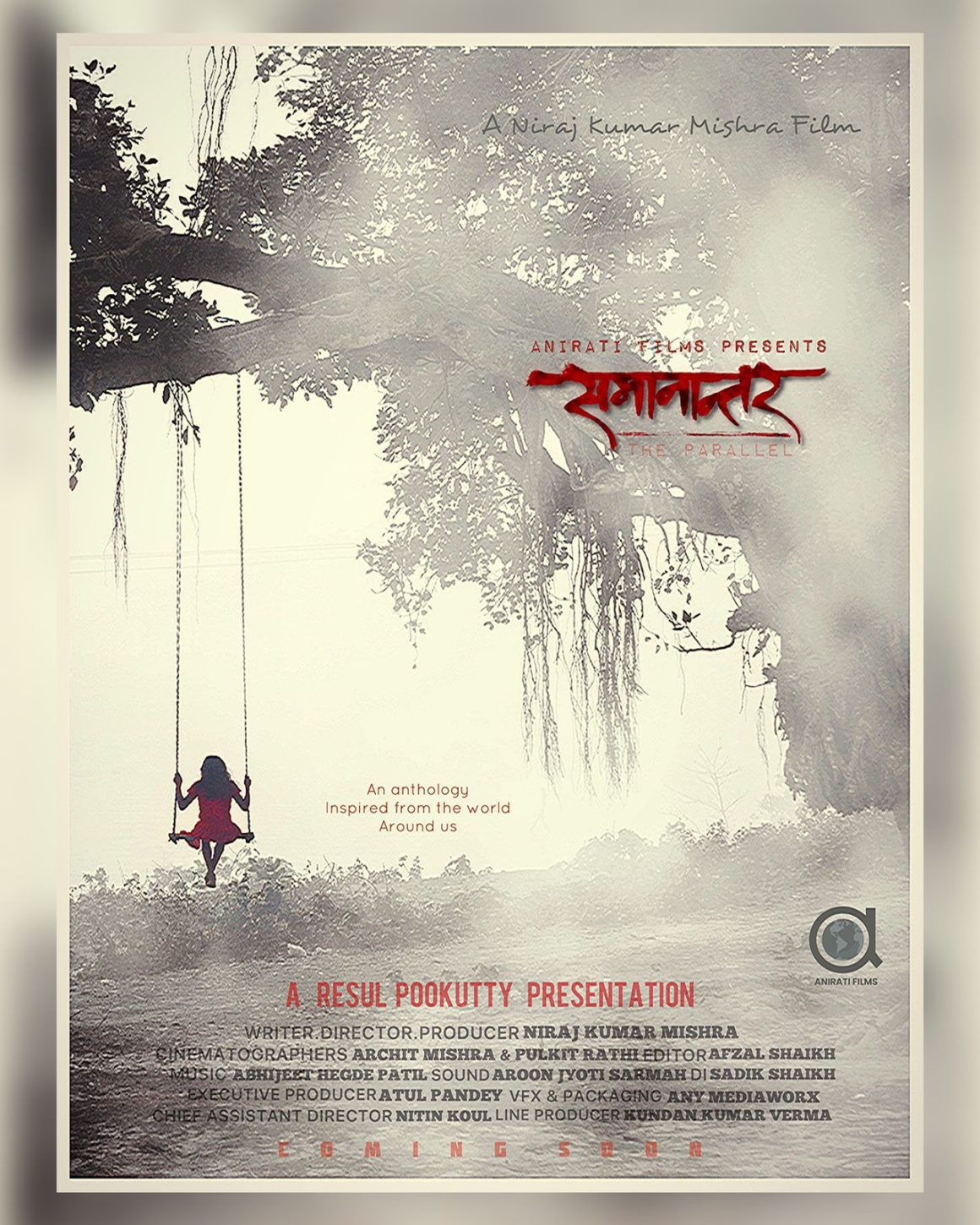Apart from being referred to as the ‘Sound God’ of Indian cinema, Resul Pookutty is also known for putting his weight behind cinematic voices that he believes in. Resul has come on board for writer-director-producer Niraj Kumar Mishra’s feature film ‘Samanantar’ (‘The Parallel’) that has been screened at some of the most prestigious film festivals across the globe and garnered accolades there.
In this interview, the Oscar winning sound designer and filmmaker talks about what made him lend his support to ‘Samanantar’ (‘The Parallel’), backing independent voices, the role sound plays in a thriller, plans to release the film, paying a tribute to Sushant Singh Rajput, dealing with the ‘Oscar curse’ back in the day and more.
You came on board as the presenter for ‘Samanantar’ (The Parallel) after it was shot. What was so special about this film that you decide to back it?
The originality of the film is what appealed to me the most. It has a unique visual language. We have certain preconceived notions about supernatural films and the way they would turn out to be. ‘Samanantar’ is nothing like you would have seen before. When I watched the film, I was very surprised. It is a film that is steeped in realism and has a very believable narrative. It is rich in ethnicity and culture. I also discovered a new face of Bihar through this film. Unfortunately, Bihar has been portrayed in a stereotypical manner in most Hindi films and I hope after the release of ‘Samanantar’, that is one thing that would change. People often say that Bihar is a state filled with poverty and criminals. They tend to forget that it is also a state that has produced the highest number of IAS officers. So many great writers have come from there. Mainstream cinema has never portrayed the brighter aspects of the state. ‘Samanantar’ has done this for the first time.
Writer-director Niraj Kumar Mishra has described ‘Samanantar’ as a philosophical thriller with horror elements to it. It is often believed that sound plays an important role in a horror film.
Sound plays an important role in every film but you have to use it in the right measure. ‘Samanantar’ is not an out-and-out horror film but there are some elements which will leave a thrilling impact on the audience. It is a supernatural thriller rooted in folklore. If there is a scene which has been designed to evoke horror, the sound effects should be used in a subtle manner for the desired impact. The sound should underline the emotions but not in an exaggerated manner. I think with ‘Samanantar’, we have managed to do that. My team is reworking on the sound of the film and certain changes are being made to augment the emotions in certain scenes. When you see the film, you will realize that it is a technically sound product.
‘Samanantar’ is Niraj Kumar Mishra’s first feature film as a director. As a filmmaker, what do you think, his strengths are?
He is a solid filmmaker. What is commendable is that Niraj made this film on his own without any external support. There is an amazing storyteller in him. As an audience member, I am extremely happy with the way he has made ‘Samanantar’. I hope he continues to make such enriching films.

This is not the first time you have backed a new filmmaker. You were an executive producer on the National Award winning film ‘Chittagong’ (2013) which was scientist-turned-filmmaker Debabrata Pain’s first film as a director. You also have also backed a few other films like ‘I.D.’ (2012) and ‘Nanak Shah Fakir’ (2014) in different capacities. In an interview, you had stated that it is difficult to tell the kind of stories you want to tell. Is that the reason you support independent or emerging voices?
If you ask somebody like A. R. Rahman, who is also a producer now, he will also tell you that it’s difficult to make the kind of film you want to make. The biggest of names in the industry face difficulties in this regard. I have always been a big fan of independent cinema. I grew up studying in government schools. My experiences have helped me stay grounded. I feel we must always try to give something back to the society. I strongly believe that if you want to grow, you have to interact with the younger generation.
After A. R. Rahman mentioned it, you also spoke about the ‘Oscar Curse’ a while back. You said that after winning the Oscar for ‘Slumdog Millionaire’, nobody was offering you work in Hindi cinema. Why, do you think, this happened?
When you achieve something big, people tend to reject you or try to run you down. Such things happen everywhere. If you go through my filmography, you will realize I have worked more on independent films than mainstream movies. If ten projects are offered to me, I pick five which I find interesting. I want to keep doing different things. I have recently finished writing three scripts. I will be directing a film soon.
What is the kind of release strategy you have in mind for ‘Samanantar’?
Every filmmaker wants to reach out to the widest audience with his film. Right now, the film is doing the rounds of festivals. A couple of international studios have shown interest in the film. We are trying to work out a release strategy that would benefit the film in the best possible way. Personally, ‘Samanantar’ is my tribute to Sushant Singh Rajput and his memory. Sushant has a regional connect with this film. It has been shot in the same region he was born in. I was highly inspired by the way Sushant was as an artist and a human being. One can never forget his sparkling smile.

